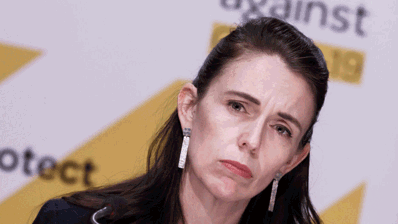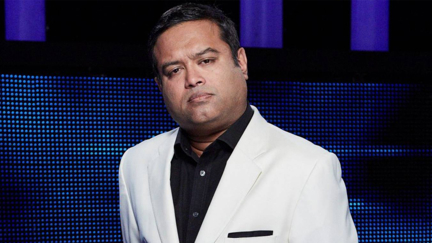PM Jacinda Ardern reveals updates to Alert Level rules, 13 new community cases of Covid-19

- Book your Covid-19 vaccination: bookmyvaccine.covid19.health.nz
- View the latest list of locations of interest
- What to do at Alert Level 4
- What to do at Alert Level 3
- What to do at Alert Level 2
There are 13 new cases of Covid-19 in the community today - including a truck driver who left Auckland.
The driver was tested after isolating after being a household contact of another case, director-general of health Ashley Bloomfield said.
The truck driver travelled to Hamilton, Cambridge and Tauranga but it's unclear if he was infectious during that time.
There may be no locations of interest, Bloomfield said.
Prime Minister Jacinda Ardern said Cabinet has considered settings at alert level 1 and reached the conclusion that alert level 1 will remain the same, with no changes following the Delta outbreak.
The most important consideration is that alert level 1 is for an environment with no risk of community transmission. So long as Auckland is in the higher alert levels, we will need a greater preparedness in the rest of the country, Ardern said.
If on Monday, the Government confirms Auckland moves to alert level the number of people who can gather in hospitality venues will increase from 50 to 100 in other parts of the country, Ardern said
Testing for workers crossing the border
From 11:59 this evening all permitted travellers across the Auckland boundary must show proof they have been tested.
Police will check compliance from midnight tonight, and those who cannot show proof will be turned back, Bloomfield said.
There is a pop-up testing centre at Mobil station on SH1 near Meremere from tomorrow.
Twelve of today's 13 cases have been linked to the outbreak - the unlinked case was tested and discovered after they visited Middlemore Hospital.
Further testing is happening at Middlemore, including in the adult surgical and medical wards.
Nineteen people with Covid-19 are in hospital - four are in ICU.
Ten cases are at Middlemore Hospital, six at Auckland Hospital and three at North Shore Hospital.
There are five new cases among recent returnees - two of these are classified as historical.
Five cases from yesterday are linked to exposure events, seven of yesterday's cases were in isolation throughout the period they were infectious.
There are 536 active cases in the community, 460 people have recovered from the virus since the community outbreak began in August.
More than 17,570 Covid-19 tests have been carried out in the last 24 hours across the country. Close to 62,780 1st doses of the Covid-19 vaccine administered yesterday, and 39,775 of 2nd doses.
Rapid testing kits
100,000 rapid test kits arrived in the country yesterday.
A pilot will be rolled out at international airports and Middlemore Hospital, to "help work out now how to best use them in the future", Bloomfield said.
Vaccine buses
The first of mobile vaccine buses launched in Auckland this morning. Three launched this morning - one to Lincoln Rd and another at Papakura Station. Twelve will be provided in total thanks to Auckland Airport.
Experts warn the only way for New Zealand to avoid lockdowns is to have at least 90 per cent of the eligible population vaccinated.
Ardern said there will be a focus on the buses travelling to suburbs where access to vaccinations are more difficult.
Three million doses have been administered nationwide - "a significant milestone", Ardern said.
She wants to see 80 per cent of all Aucklanders vaccinated with their first dose by the end of the week.
She urges anyone who hasn't had their first vaccine to "do it today".
The converted black and orange airport Park & Ride buses have vaccination signs posted on their sides. One reads "Roll up your sleeves, Auckland", and another "Vaccinate for Auckland".
Ardern this week asked for names for the service and narrowed it down to Jabba Waka, Shot Bro, Jabbin' Wagon, Vaxi Taxi. In the end "Shot Bro" was the most popular.
Yesterday, 14 new cases of Covid-19 were announced in the community.
All were linked to existing cases but three people were infectious while in the community, creating 10 new exposure events.
There was an increase in testing Tuesday in Auckland, with 10,341 new tests completed.
Labour MP Willie Jackson said the answer to boosting vaccination among Māori and Pacific people was to enlist the help of people from within those communities.
"Our people know our people."
Jackson said he was pleased to see the support at community level for vaccines.
"I'm really excited because we need to get out into these communities in South Auckland," he said.
Auckland mayor Phil Goff said: "We are taking the vaccine to the people."
The aim was to get up to 80 per cent of Aucklanders having had one shot of the vaccine by the end of the week.
Although the current lockdown was the right decision, the country could not rely on lockdowns forever.
The six buses - on loan to the Northern Region Health Coordination Centre - will act like pop-up vaccination clinics. Pukekohe is one of the first areas a bus will visit this afternoon.
Covid-19 modeller Professor Michael Plank told Newstalk ZB this morning his modelling showed that reopening New Zealand with 70-80 per cent vaccination would still leave the country vulnerable.
As of yesterday, 38 per cent of New Zealand's eligible population were fully vaccinated and 70 per cent had received at least one dose.
"It will be difficult to avoid large scale health impacts - that could include tens of thousands of hospitalisations and potentially thousands of deaths.
"So we really need to try and get that vaccination coverage into the 90s", which would make the situation more manageable, he said.
Plank believed it was possible to vaccinate 90 per cent of the eligible population.
"That's the way to reduce the health impacts that will come when we open up our borders and we inevitably do start to get outbreaks of Covid-19."
The United Kingdom had reasonably high vaccine coverage, he said. "But they also still have a lot of people dying." Most deaths were in older people "but not exclusively", he said. An "enormous" number of people in Britain were in hospital including a number of younger people.
But epidemiologist Rod Jackson thought the number needed to even be higher to avoid lockdowns.
Jackson said 95 per cent of over 12-year-olds needed to be vaccinated as that still left 700,000 children under 12 and 250,000 people unvaccinated.
Over the next few months there needed to be a focus on moving the vaccine hesitant people to being vaccinated, rather than on the small number of anti-vaxxers who he didn't think should be given any oxygen, he said.
For more information visit covid19.govt.nz.
This article was first published on the NZ Herald and is republished here with permission.
Take your Radio, Podcasts and Music with you




